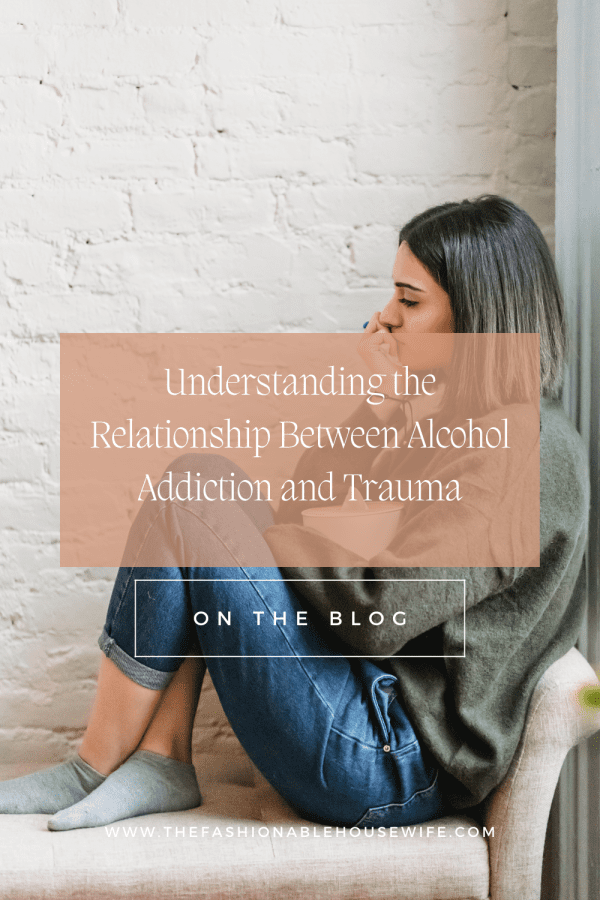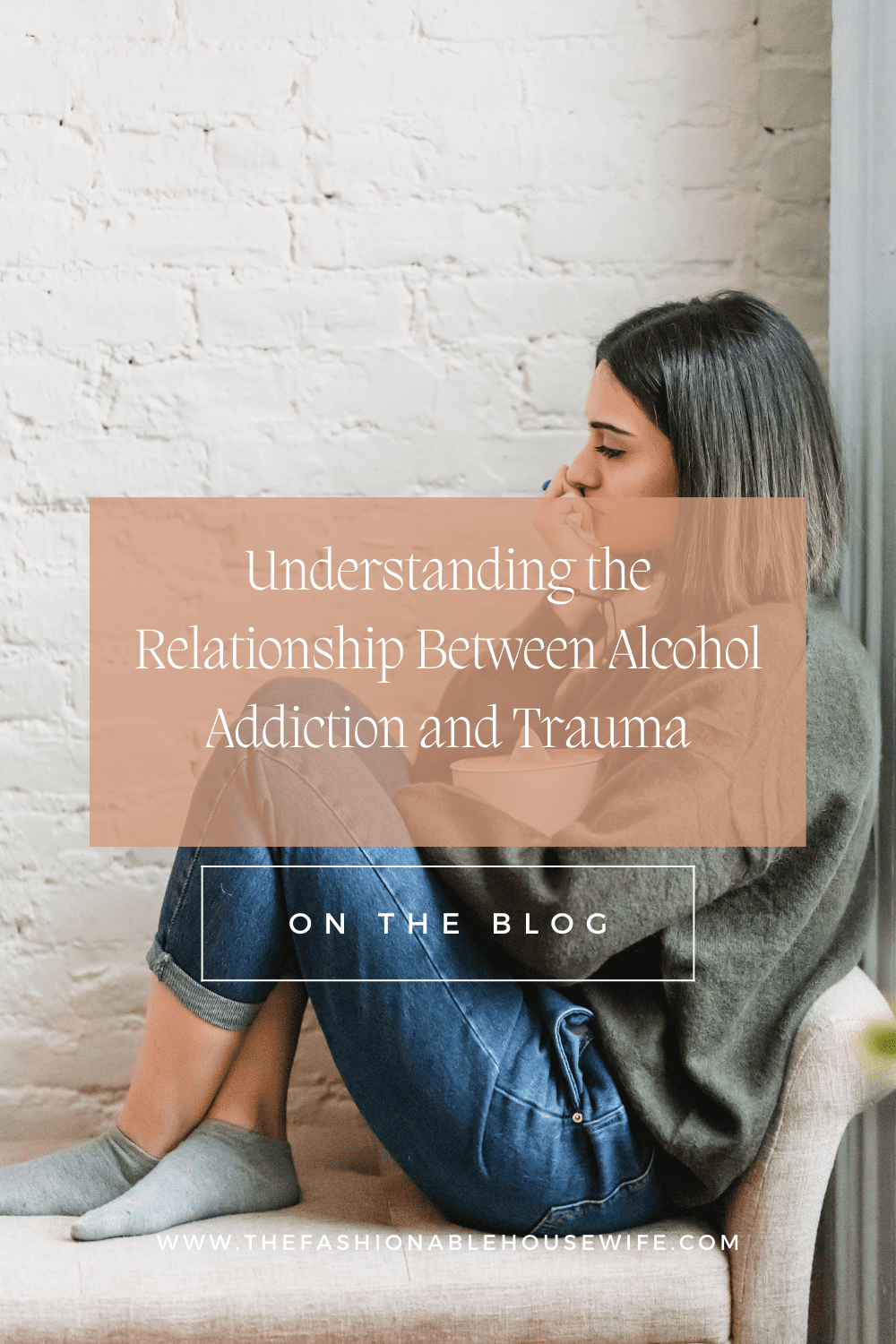Understanding the Relationship Between Alcohol Addiction and Trauma

Alcohol addiction and trauma are two intertwined challenges that often coexist, creating a complex web of struggles for individuals seeking healing and recovery. Understanding the deep-rooted relationship between these two issues is crucial in developing effective treatment approaches that address the underlying causes of addiction. This article explores the intersection of alcohol addiction and trauma, delving into the impact of trauma on alcohol use, identifying triggers and coping mechanisms, and examining holistic strategies for integrated healing. By shedding light on the connections between trauma and addiction, we aim to provide insights into how individuals can embark on a path toward sustainable recovery and well-being.
Alcohol addiction and trauma are deeply intertwined, often existing in a complex and cyclical relationship. Understanding this connection is crucial for developing effective treatment approaches and promoting healing.
Trauma: A Hidden Trigger for Addiction:
Individuals who have experienced trauma are significantly more likely to develop alcohol addiction. This increased vulnerability can be attributed to several factors:
Self-Medication: Trauma survivors often turn to alcohol to numb emotional pain, cope with distressing memories, and escape from overwhelming feelings. While alcohol may provide temporary relief, it ultimately exacerbates the underlying trauma and hinders the healing process.
Increased Vulnerability: Trauma can alter brain chemistry and disrupt the stress response system, making individuals more susceptible to addiction. It can also lead to difficulties with emotional regulation, impulsivity, and a heightened sensitivity to stress, all of which increase the risk of developing unhealthy coping mechanisms like alcohol abuse.
Triggering Trauma Memories: Alcohol can act as a trigger for trauma memories, leading to flashbacks, nightmares, and intense emotional distress. This can further perpetuate the cycle of addiction as individuals seek to numb the pain associated with these memories through further alcohol use.
The Impact of Trauma on Addiction:
Trauma can significantly impact the course and severity of alcohol addiction:
Increased Cravings: Individuals with trauma histories often experience more intense cravings for alcohol, making it harder to resist the urge to drink.
Relapse Risk: Trauma symptoms can trigger relapses in individuals recovering from alcohol addiction. For example, experiencing anxiety or depression can increase the likelihood of returning to alcohol use as a coping mechanism.
Treatment Challenges: Co-occurring trauma can complicate alcohol addiction treatment. Addressing the underlying trauma is crucial for long-term recovery success.
Addressing Trauma in Addiction Treatment:
Treating alcohol addiction without addressing the underlying trauma is often ineffective and can lead to relapse. Therefore, integrated treatment approaches that address both the addiction and the trauma are essential for long-term recovery.
Trauma-Informed Care: Trauma-informed care recognizes the impact of trauma on individuals and aims to create a safe and supportive environment for healing. This approach involves understanding the unique needs of individuals who have experienced trauma and providing care that is sensitive to their experiences.
Trauma-Specific Therapies: Various therapies can help individuals process and heal from trauma.
These include:
Trauma-focused Cognitive Behavioral Therapy (CBT): This therapy helps individuals identify and challenge negative thoughts and beliefs associated with their trauma.
Eye Movement Desensitization and Reprocessing (EMDR): EMDR is a therapy that uses bilateral stimulation (such as eye movements or tapping) to help individuals process and desensitize traumatic memories.
Somatic Experiencing: This therapy focuses on the body’s response to trauma and helps individuals release trapped energy and tension associated with traumatic experiences.
Support Groups: Support groups can provide a safe space for individuals to connect with others who have experienced similar trauma and share their experiences in a supportive and understanding environment.
Breaking the Cycle: A Path to Hope:
Healing from the intertwined issues of alcohol addiction and trauma is possible. By addressing both conditions simultaneously through integrated treatment approaches, individuals can break the cycle of addiction and build a healthier, more fulfilling life. With proper support and guidance, individuals can find pathways to healing, reclaim their sense of agency, and build resilience against future challenges.

The Link Between Trauma and Alcohol Use
When life throws lemons your way, sometimes reaching for a stiff drink can seem like the only logical solution. Trauma and its not-so-friendly companion, alcohol use, often go hand in hand.
Neurobiological Effects of Trauma on Addiction
Ever heard of your brain playing tricks on you? Well, trauma can hijack your brain’s reward system and push you towards seeking solace in alcohol. Talk about a toxic tag team.
Types of Trauma and Their Influence on Alcohol Use
From childhood wounds to adult heartbreaks, different types of trauma can fuel your desire to drown your sorrows in the bottom of a bottle.
Escapism and Self-Medication: How Trauma Drives Addiction
When life gets tough, the allure of escaping reality through alcohol can be oh-so-tempting. But what starts as a coping mechanism can quickly spiral into a full-blown addiction.
Identifying Trauma Triggers and Coping Mechanisms
Recognizing Triggers and Patterns in Alcohol Use
Ever wonder why that one song makes you reach for the whiskey? Identifying triggers and patterns in your alcohol use can help you break the cycle of trauma-driven drinking.
Healthy Coping Strategies for Trauma-Related Cravings
Instead of drowning your sorrows in a sea of booze, how about finding healthier coping strategies? Hint: bubble baths and deep-breathing exercises can work wonders.

Treatment Approaches for Addressing Co-occurring Alcohol Addiction and Trauma
Integrated Therapy Models for Dual Diagnosis
When addiction and trauma team up, a one-size-fits-all approach won’t cut it. Integrated therapy models that address both issues together can pave the way for lasting healing.
Pharmacological Interventions and Behavioral Therapies
From popping pills to talking it out, a combination of pharmacological interventions and behavioral therapies can help untangle the messy knot of alcohol addiction and trauma.
Healing and Recovery: Strategies for Integrating Trauma Work in Addiction Treatment
Processing Trauma in Therapy Sessions
Navigating the intersection of alcohol addiction and trauma often involves delving into past experiences in therapy sessions. By unpacking and processing traumatic events with a qualified therapist, individuals can begin to untangle the complex web that binds trauma and addiction together.
Developing Resilience and Emotional Regulation Skills
Building resilience and honing emotional regulation skills are crucial aspects of integrating trauma work into addiction treatment. Learning to cope with challenging emotions and triggers can empower individuals to navigate the ups and downs of recovery more effectively.
Building a Support System for Sustainable Healing
Fostering Healthy Relationships in Recovery
Creating a support system of healthy relationships can provide a solid foundation for sustainable healing. Surrounding oneself with individuals who nurture growth, offer encouragement, and provide a safe space can bolster recovery efforts.
Peer Support Groups and Community Resources
Engaging with peer support groups and tapping into community resources can complement formal treatment programs. Connecting with others who understand the journey of recovery can offer invaluable insight, empathy, and encouragement along the path to healing.
Mindfulness and Self-Care Practices in Trauma Recovery from Alcohol Addiction
Mindfulness practices can play a pivotal role in managing cravings and navigating trauma responses during recovery. By cultivating present-moment awareness and non-judgmental acceptance, individuals can develop resilience in the face of triggers.
The Role of Self-Compassion and Self-Care in Healing
Embracing self-compassion and prioritizing self-care are essential components of trauma recovery from alcohol addiction. Treating oneself with kindness, understanding, and care can foster a sense of inner strength and well-being, paving the way for profound healing.In conclusion, navigating the intersection of alcohol addiction and trauma requires a compassionate and comprehensive approach that acknowledges the complexities of these experiences. By prioritizing trauma-informed care, integrating strategies for healing, and fostering supportive environments, individuals can embark on a journey towards lasting recovery and transformation. Through awareness, understanding, and a commitment to holistic well-being, it is possible to navigate the path to healing from the intertwined challenges of alcohol addiction and trauma, empowering individuals to reclaim their lives and embrace a future filled with hope and resilience.

